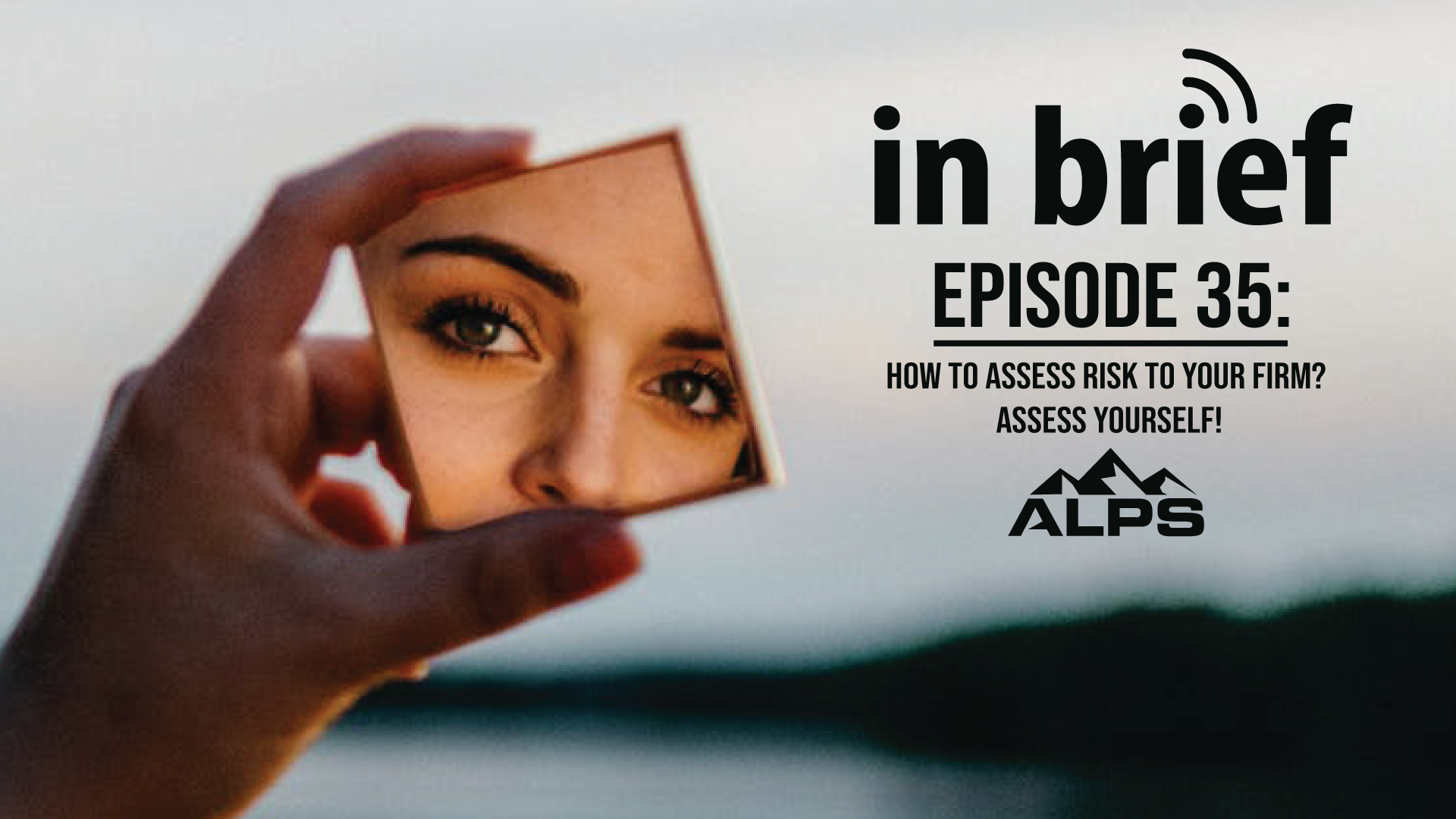12 min read
ALPS In Brief – Episode 35: How to Assess Risk to Your Firm? Assess yourself!
ALPS Risk Manager Mark Bassingthwaighte sits down with Matt Sims, co-founder of Standpoint Decision Support Inc. to discuss risk assessment and...
We've crafted solutions tailored to your firm
The world of insurance for law firms can be confusing, and difficult to navigate. We've created this glossary because these common insurance terms should be easy to understand.
2 min read
 Mark Bassingthwaighte, Risk Manager
:
Updated on November 1, 2022 | Posted on June 24, 2021
Mark Bassingthwaighte, Risk Manager
:
Updated on November 1, 2022 | Posted on June 24, 2021

Call me crazy, but I simply don’t trust that Big Tech has my best interests at heart with everything they do. In fact, I think it’s quite the opposite. Big Tech became Big Tech by focusing on the interests of their stockholders and the bottom line. Yes, the user experience has always been front and center; but creating an awesome user experience isn’t the same thing as putting the best interests of the user front and center.
With this in mind, let’s talk about Amazon Sidewalk, which went live here in the States on June 8th. In short, by utilizing a small sliver of your Wi-Fi, Sidewalk uses various Echo and Ring devices to create an ad-hoc mesh network that helps improve the connectivity of your other smart devices, for example, devices located around the edge of your property. Here’s the kicker. Your neighbors’ devices can also automatically connect to this network by default because Sidewalk’s purpose is to allow people with Sidewalk enabled smart devices to maintain device functionality as they walk throughout their neighborhoods. Like I said, the user experience is front and center!
Should you be concerned?
Maybe. First, the good news. Amazon has stated the company uses three layers of encryption for all Sidewalk transmissions, transmission routing data is deleted every 24 hours, and rolling IDs are used in order to prevent transmissions from being tied to any specific user. In addition, other people’s Sidewalk devices won’t actually be able to see or access your Wi-Fi network, and you won’t have any access to information about those devices.
Okay. So, what’s the problem?
Sidewalk is enabled by default. It’s an opt-out model. You pay for all the bandwidth you use and yet Amazon apparently has no qualms about unilaterally deciding it’s fine to take a little bit of your bandwidth for the benefit of others. Yes, I guess you could recover that if you use your own Sidewalk enabled devices throughout your neighborhood; but why did Amazon go with the opt-out approach? Couple this with the public relations message that is focusing on privacy instead of security and I hope you see the concern. In my mind, it seems like Sidewalk could become an attractive target for hackers and as lawyers, we have quite a bit of confidential information residing on our networks.
Is there anything you can do?
Yes, there is but let me clear in stating my purpose with this post is not to try and convince you to opt-out. I readily admit that even today, Sidewalk could help someone use a Sidewalk enabled device to locate a missing pet, lost item or even a loved one with dementia who has wondered off. All I can say is Sidewalk is new. The true benefits and risks have yet to fully manifest themselves.
Now that you know, you have a choice to make if you have Ring and/or Echo devices in use at your home or office. If now’s not the time in your mind, to start using Amazon Sidewalk, opt out. There is a Sidewalk setting in both the Ring and Alexa app. Just turn it off. You can always decide to turn it back on once the benefits and risks become clearer. If, on the other hand, you love this whole idea, that’s fine. I just want to make sure you are the one making the decision and not Amazon. That’s all that matters to me.
Mark Bassingthwaighte, Esq., serves as Risk Manager at ALPS, a leading provider of insurance and risk management solutions for law firms. Since joining ALPS in 1998, Mark has worked with more than 1200 law firms nationwide, helping attorneys identify vulnerabilities, strengthen firm operations, and reduce professional liability risks. He has presented over 700 continuing legal education (CLE) seminars across the United States and written extensively on the topics of risk management, legal ethics, and cyber security. A trusted voice in the legal community, Mark is a member of the State Bar of Montana and the American Bar Association and holds a J.D. from Drake University Law School. His mission is to help attorneys build safer, more resilient practices in a rapidly evolving legal environment.

12 min read
ALPS Risk Manager Mark Bassingthwaighte sits down with Matt Sims, co-founder of Standpoint Decision Support Inc. to discuss risk assessment and...

2 min read
Counterfeit checks are more of a problem than most realize. Scam artists create millions of these checks each year and while there are a wide...

3 min read
I’ve heard all kinds of crazy comments from lawyers over the years. For example, during a CLE event with a state bar’s ethics counsel sitting next...